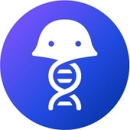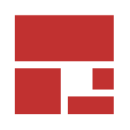“San Francisco is a mad city,” Rudyard Kipling once wrote, describing the charming electricity and ambition of the Golden City.
Since its boomtown beginnings in the 1850s, San Francisco has been in a near constant state of impressive growth — hopeful new industries emerging and rolling like the waves of its famous bay. At the helm of The City’s latest boom: socially impactful tech powered by robust career development and restless optimism.
Among The City’s dreamers is Granular Senior Product Manager Katie Sierks, a self-described “techno-optimist” who believes that tech must work hand-in-hand with behavioral change. Sierks committed her work to combating climate change — a passion that Granular has been quick to stoke with career-growing opportunities.
“My work on our carbon initiative helps me understand the challenges of incentivizing behavioral change at scale,” Sierks shared. “I hope to continue to research the barriers that prevent transformational change so I can help build products that facilitate ‘shovel-ready’ climate solutions.”
Moveworks Product Manager Rahul Kayala has enjoyed similar support, where his natural aptitude was celebrated and honed while working at the AI platform.
“Moveworks takes every employee’s strengths into consideration when assigning opportunities,” Kayala said. “I have a natural analytical instinct: My manager finds opportunities that allow me to develop, like leading our suite of bot performance analytics products.”
Trey Miller, a product manager at Benchling, reports deep fulfillment in his growth within life science research and development, a sweeping industry that spans crop engineering to the development of novel cancer therapeutics.
“Rather than managing an engineering sprint, we’re managing something like the development of a new vaccine,” Miller said. “While working on this massive project, members of the product team mentored me as I started to create my first roadmap, strategy and product vision.”
It’s easy to see why starry-eyed professionals from around the world make their way to SF — virtually and in-person — to enjoy the foggy air of innovation that washes over The City. When Built In SF sat down with three emerging product managers, it became clear that Benchling, Moveworks and Granular are avid subscribers to the San Franciscan spirit of growth — and their employees reap the benefits.

Benchling is a cloud and healthtech company on a mission to use biotechnology to empower global customers to get to market faster.
Tell us about a project you’ve worked on at your company that has helped you hone your product management skills.
My focus at Benchling has been building our workflow product — designed to orchestrate end-to-end research and development (R&D) processes and improve collaboration between scientists. We model these workflows as a graph that flows data and materials between steps, plus add-on task management functionality that helps scientists manage and track their work.
You can think about it as Asana or JIRA for life science: We’re typically managing something like the development of a new vaccine.
This is a really big project that’s helped me grow in many ways. The life science R&D space is very wide, spanning from engineering crops to produce higher yields to creating novel cancer therapeutics. This meant I had to spend a lot of time performing user research and matching patterns across divergent use cases to develop a product that could be easily configured for a wide range of our customer’s needs.
I learned a lot from my design partner as we iterated on concepts and validated them with customers to arrive at our ideal state. I’ve developed deep customer relationships that I rely on to provide feedback and insight as we build more complex functionality.
Give us some insight into professional development at your company.
I started at Benchling on the CX team, where I worked with our customers to evaluate their business processes and configure the product for their needs. I spent the majority of my time working with some of our then most complex implementations. I began to partner with PMs to develop new features as we stretched our product and discovered gaps.
This energized me. We were talking about the same problems but through a different lens of how we could solve them from a wider and more impactful perspective beyond a single customer.
While I had deep context on our customer’s needs and how they use our product, I lacked PM experience or formal training. Members of the product team mentored me, and I was able to share rough ideas and hypotheses to gather feedback and unearth blindspots before communicating more widely.
A few months into my product tenure, I used Benching’s development stipend to take a product management fundamentals course. The course covered many of the traditional skills that I lacked formal training in, from developing a strategy to the tactical, day-to-day decisions and communication.
I’m now thinking more critically about what I can do to achieve alignment.”
What’s an upcoming project you’re excited to work on?
I’m excited about a new project automating and streamlining data entry. Scientists create tons of data every day and often manually transcribe or transform it as they record it into systems like Benchling. This reflection takes quite a bit of time and sometimes isn’t done for a few days or weeks.
After I took a trip to Boston to meet with several of our customers, I realized this might impact the value they gain from our workflows product. To become the driver of these processes, we need data to be entered in our product in lockstep with the real world. We realized that many of the components we use for collaborative workflows can be repurposed to better structure data entry so that our users can more efficiently create data as they perform their work.
This is a radical shift in our current product model — moving from a document-centric structure to one that’s more graph-based, automated and stepwise. After reflecting on previous projects, I realized I hadn’t shared enough product context to drive decisions. I’m now thinking more critically about what I can do to achieve alignment across our teams and develop a compelling strategy to move the project forward.
Granular is a greentech company that aims to be the world’s leading farm management software.
Tell us about a project you’ve worked on at your company that has helped you hone your product management skills.
I had the opportunity to lead product development for our carbon initiative. This project provides a financial incentive to farmers who adopt new agricultural practices that improve soil health. This carbon initiative — powered by Corteva, our parent company — enables farmers to get paid premium prices for credits while simplifying the data-entry and credit-generation process.
As product lead, I was responsible for the entire product development lifecycle from discovery to initial release to success at scale. I built an understanding of our target user, articulated the product vision and strategy, defined a short-term and long-term roadmap and expanded the product development team.
This project enabled me to develop as both an individual contributor and as a leader. Improving my discovery skills and techniques allowed me to understand key user pain points. This information helped me refine the product vision and strategy which was crucial for broader team support and execution.
I am lucky that I can easily brainstorm with and solicit advice from an industry-leading team.”
Give us some insight into professional development at your company.
Corteva offers both company-led and self-guided professional development. The product management team holds monthly development meetings where we learn about different functional and industry-specific topics.
I recently completed “Agronomy Essentials,” a three-month deep dive into crop growth, soil health quantification methods and in-season management decisions. I also was able to participate in our hackathon as an engineer, refining my understanding of our tech stack.
Finally, Corteva employees are invaluable resources: I work with some of the best soil scientists, engineers and customer success managers. I am lucky that I can easily brainstorm with and solicit advice from an industry-leading team.
What’s an unexpected way these experiences have affected the overall trajectory of your career?
I am committed to using my career to help combat climate change. While I remain a techno-optimist, I have a greater appreciation for the importance of policy and behavioral change to solve the climate crisis.

Moveworks is an AI platform that helps employees focus on the task at hand by providing quick support and enabling leaders to anticipate problems.
Tell us about a project you’ve worked on at your company that has helped you hone your product management skills.
At Moveworks, every single product manager gets to own a massive problem that affects almost every business in the world. One of the problems I was tasked with solving is forms, which are critical for speeding up support but often hard to find and time-consuming to complete. In theory, it’s a perfect task for AI to address.
The challenge is that building AI from scratch is incredibly difficult. I handled everything from generating synthetic training data, manually annotating thousands of user messages, running user studies to ensure our model met customer expectations and researching the best practices to protect user privacy.
Today, this tool solves thousands of issues every day for employees across the globe.
I learned that successfully deploying AI in production requires constant fine-tuning — and the best AI products leverage user feedback directly to improve the experience. This, in tandem with developing customer relationships to really understand user challenges, was key in developing a best-in-class product.
At Moveworks, every single product manager gets to own a massive problem that affects almost every business in the world.”
Give us some insight into professional development at your company.
Moveworks has been extremely supportive of my growth as a product manager. My manager and I engage in weekly one-on-ones — which he never misses — to discuss my projects, give each other feedback and identify growth areas.
First and foremost, Moveworks embodies an “always be learning” culture. As I’ve taken on more ambitious projects and wanted to develop my strategic thinking skills, my manager encouraged me to enroll in courses to support my journey. I later led a company-wide study group to share these lessons in depth with other PMs!
What’s an unexpected way these experiences have affected the overall trajectory of your career?
The reason I joined Moveworks — as opposed to any other company — is that I knew it was somewhere I could develop an entirely new product line that could impact companies around the world. 18 months later, I’m doing exactly that: leading a new, exciting product expansion and making a direct impact on the trajectory of the company.
At Moveworks, I build highly complex Machine Learning (ML) and AI-based products for millions of knowledge workers with the help of our engineering team. I lead these projects end-to-end from ideation, problem definition, validation, engineering and eventual launch to customers. Because we were building something that had never been done before, there have been several instances where my team and I had to invent cutting-edge ML techniques in the process.
As a result of my experience at Moveworks, I feel confident in my ability to lead the development of any AI project, regardless of how complex it is.











